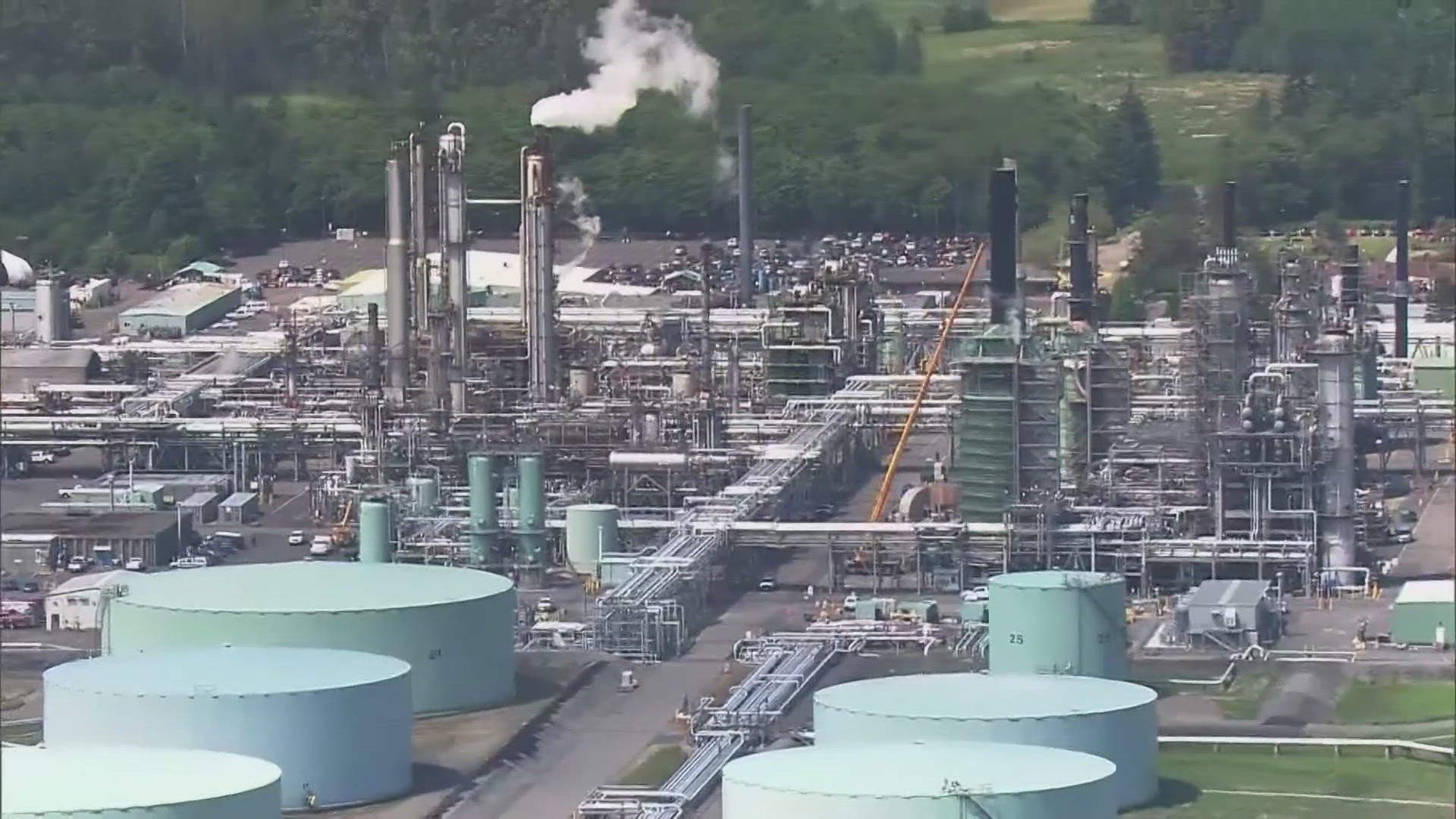OLYMPIA, Wash. — Initiative 2117, which would repeal the state's Climate Commitment Act, will appear on the Nov. 5 general election ballot in Washington state.
The Climate Commitment Act includes the carbon market program, requiring the largest polluters to pay into a fund to compensate for carbon emissions. Since 2023, revenue from the program has exceeded $2 billion to benefit environmental programs.
Supporters of the initiative have blamed the Climate Commitment Act for higher gas prices and allege the money from the program isn't being spent wisely.
Opponents of I-2117 believe that repealing the climate act will harm the state, resulting in more pollution and a cut in funding for environmental and transportation programs.
The argument for, against I-2117
Brian Heywood, the founder of Let's Go Washington, told KING 5 he believes the state isn't properly tracking how funding from the climate act is being spent. He said the state needs to start from scratch and "do something more meaningful."
"Where has the money gone?" Heywood asked as voters prepared for the August primary.
The Climate Commitment Act was signed into law in 2021. It created a "cap-and-invest" program, placing limits on greenhouse gas pollution and requiring businesses to purchase allowances if they go over that amount. Funding collected is meant to be allocated toward climate-related projects.
Clean & Prosperous Institute, a group that works with government agencies and the private sector on behalf of measures meant to address climate change, previously launched an interactive map to detail projects paid for by Washington's climate act. According to the map, projects range from a methane collection and conversion system for a Washington State University dairy in Pullman to hybrid electric vessel construction for Washington State Ferries.
Heywood said the state exaggerates crises in certain areas and it should fund projects through pre-existing revenues. The state, he said, has "more than enough" to fund projects through surplus revenue.
Opponents such as Mark Prentice criticize the initiative to repeal the Climate Commitment Act. Prentice told KING 5 that if backers of I-2117 wanted lower gas prices, they should have included language in the initiative to repeal the state gas tax.
Prentice also warned there would be costs if the initiative passes.
"So, it does harm all across our state," he said. "It means more pollution, it means more traffic, it means dirtier air and dirtier water, and it means $5 billion cut from our statewide transportation plan, from roads and bridges, and sidewalks and transit. So, that's going to mean more traffic and fewer choices for Washingtonians."
What does voting "yes" on I-2117 mean?
A "yes" vote on I-2117 would mean you're in support of repealing the Climate Commitment Act.
"If 2117 passes, the price of gas, relative to other states, will go down. We're putting a 25 to 50 cent tax on it," Heywood previously said. "I can guarantee if we get rid of this flawed grifting program, the cost of gas will go down."
Heywood has suggested in the past, including in videos produced by his group, Let's Go Washington, that the legislation he's hoping to repeal includes hidden taxes that drive up gas prices.
If approved, the initiative takes effect 30 days after the election.
What does voting "no" on I-2117 mean?
A "no" vote on I-2117 would keep the Climate Commitment Act in place.
Former state Sen. Reuven Carlyle, who is vehemently against I-2117, previously said KING 5 there's not a single provision in the initiative that would lower gas prices "in any way."
At its core, the former senator said the environment remains the primary objective behind the current legislation.
"It's the single most effective climate policy in the world. It works, the data is overwhelming," he said.

